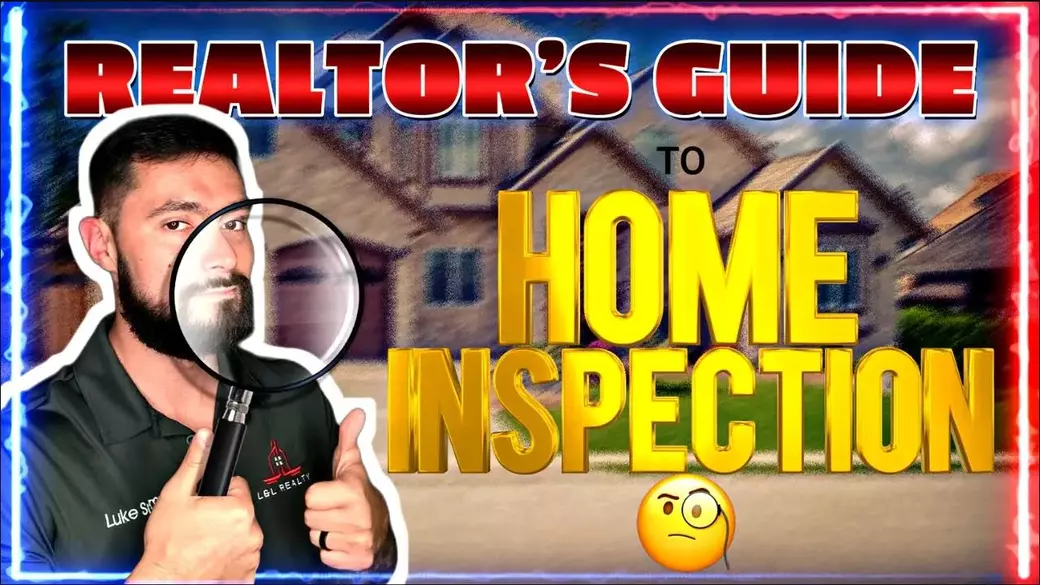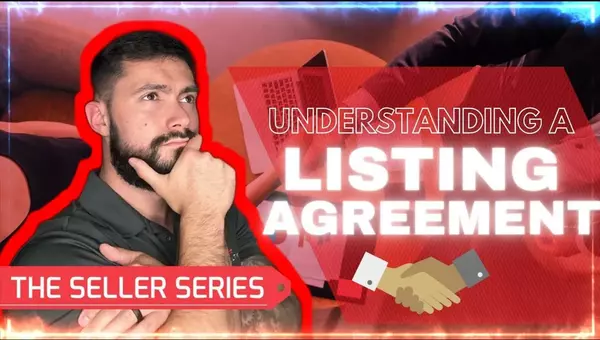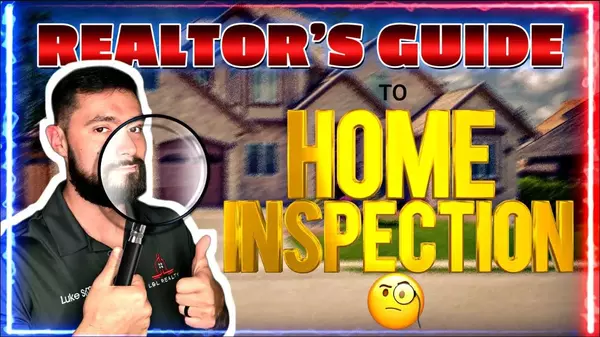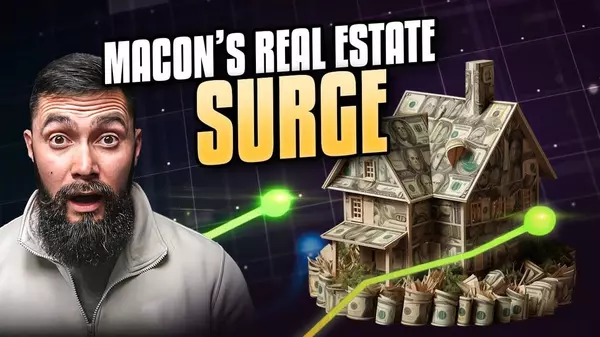The Essential Home Inspection Checklist: Avoid Costly Surprises and Find Your Dream Home

The Essential Home Inspection Checklist: Avoid Costly Surprises and Find Your Dream Home
TL;DR — Before you even make an offer, conduct a thorough pre-offer inspection to spot red flags and save thousands on future repairs. Focus on exterior elements like the driveway, roof, foundation, drainage, windows and siding, and even sprinklers; then check the garage for water damage and the electrical panel, and peek into the attic; inside, test lighting, HVAC, plumbing, major appliances, bathrooms, and watch for uneven floors or cracks. Don’t forget seller disclosures, recent renovations and proper permits, and consider neighborhood factors that could affect value. This proactive step can prevent wasted time and money, and Luke Smith notes that while a pro inspection after an offer can cost $375–$425 in Middle Georgia, knowing what to look for beforehand can save that cost if serious issues exist; you’ll still want a professional inspection later to confirm everything.
Buying a home is one of the biggest financial decisions you'll ever make, and it's crucial to ensure you're making an informed choice. While a professional home inspection is a must, there are several key areas you can (and should) inspect yourself before even making an offer. By taking the time to thoroughly evaluate a property, you can save thousands of dollars in potential repairs and avoid costly surprises down the line.
In this comprehensive guide, we'll walk you through the top home inspections you can't afford to miss, straight from the expertise of real estate agent Luke Smith. Whether you're a first-time homebuyer or a seasoned investor, this checklist will equip you with the knowledge you need to find your dream home with confidence.
Why Conduct a Pre-Offer Home Inspection?
The typical home inspection process happens after you've already made an offer on a property and entered into a contract. This inspection, conducted by a professional, can uncover a wide range of issues, from structural problems to electrical and plumbing concerns. However, by the time you reach this stage, you've already invested significant time, effort, and potentially even earnest money into the transaction.
That's where a pre-offer home inspection comes in. By taking the time to thoroughly inspect a property before making an offer, you can identify any major red flags and avoid wasting money on a home that may require extensive (and expensive) repairs. This proactive approach can save you hundreds, if not thousands, of dollars in the long run.
As Luke Smith explains, "If you're not careful, a home inspection can cost you $375 to $425 here in the Middle Georgia area, depending on the square footage. However, if I can teach you what to look for before making an offer, you can save that money if there are serious issues."
The Essential Home Inspection Checklist
Ready to dive in? Let's explore the key areas you should inspect before making an offer on a property:
1. Exterior Inspection
-
Driveway: Examine the driveway for any cracks or shifts in the concrete, as these can be indicators of foundation issues.
-
Roof: If the home has shingles, look for cracks, damage, or missing shingles. Visible issues with the roof can be a significant red flag.
-
Foundation: Carefully inspect the foundation for any cracks or signs of shifting. This can be a costly problem to address.
-
Drainage: Ensure that water is properly draining away from the home's foundation, as poor drainage can lead to water damage and foundation problems.
-
Windows and Siding: Check the seals around windows and inspect the siding for any cracks or damage.
-
Sprinkler System: If the home has a sprinkler system, turn it on to ensure all the sprinklers are functioning correctly. Replacing a faulty sprinkler system can cost thousands of dollars.
2. Garage and Electrical Inspection
Starting your inspection in the garage can help you approach the home with a more objective mindset, rather than getting caught up in the emotional appeal of the property.
-
Garage Seals and Water Damage: Check the seals around the garage door and look for any signs of water damage.
-
Electrical Panel: Examine the home's electrical panel to ensure it is properly labeled and in good condition. Outdated or improperly maintained electrical systems can be a significant safety hazard and costly to repair.
While you're in the garage, take the opportunity to venture into the attic and visually inspect the insulation and any other visible components. Look for signs of proper ventilation and ensure the attic light is functioning.
3. Interior Inspection
Once you've thoroughly inspected the exterior and garage, it's time to move inside the home. This is where you'll want to pay close attention to the details and test the functionality of various systems and appliances.
-
Lighting and Electrical Outlets: Turn on every light switch and ensure all the lights are working properly. Also, check the electrical outlets to make sure they are in good condition and functioning correctly.
-
HVAC System: Test the heating and cooling systems by adjusting the thermostat and feeling the airflow from the vents. Inspect the HVAC unit itself for any signs of rust or damage.
-
Plumbing: Turn on all the faucets, both hot and cold, to check for proper water pressure and ensure there are no leaks. Examine the plumbing under sinks and in the laundry room for any signs of water damage or improper sealing.
-
Appliances: Ensure all the major appliances (oven, stove, dishwasher, etc.) are in working order. Check for proper seals and any signs of water damage underneath.
-
Bathrooms: Inspect the bathrooms thoroughly, looking for proper ventilation, mold or mildew, and ensuring the toilets, sinks, and showers are all functioning correctly.
-
Floors and Walls: As you walk through the home, pay attention to the floors and walls, looking for any uneven surfaces or cracks that could indicate foundation or structural issues.
4. Additional Considerations
Beyond the physical inspection of the home, there are a few other important factors to consider before making an offer:
-
Seller's Disclosure: Review the seller's property disclosure form, which should provide information on the age and condition of the home's major systems and components. If the seller is unable to provide specific details, it could be a red flag that the home has been flipped or the seller is unaware of the property's history.
-
Permits and Renovations: If the home has undergone any recent renovations or additions, make sure to check that the proper permits were obtained. Unpermitted work can lead to costly issues down the line.
-
Neighborhood and Community: Take the time to explore the surrounding neighborhood and get a feel for the community. Consider factors like school districts, amenities, and potential future development that could impact the home's value and your quality of life.
Putting It All Together: Your Pre-Offer Home Inspection Checklist
Now that you've learned about the key areas to inspect, let's summarize the essential steps in a handy checklist:
-
Exterior Inspection:
-
Examine the driveway for cracks or shifts
-
Inspect the roof for damage or missing shingles
-
Check the foundation for cracks or signs of shifting
-
Ensure proper drainage away from the home's foundation
-
Inspect windows and siding for any damage or seal issues
-
Test the sprinkler system (if applicable)
-
-
Garage and Electrical Inspection:
-
Check the garage seals and look for water damage
-
Examine the electrical panel for proper labeling and condition
-
Visually inspect the attic for insulation, ventilation, and lighting
-
-
Interior Inspection:
-
Turn on all lights and check electrical outlets
-
Test the heating and cooling systems
-
Inspect the plumbing by turning on all faucets and checking for leaks
-
Ensure all major appliances are in working order
-
Thoroughly examine the bathrooms for ventilation, mold, and proper functionality
-
Check the floors and walls for any uneven surfaces or cracks
-
-
Additional Considerations:
-
Review the seller's property disclosure form
-
Verify that any recent renovations or additions were properly permitted
-
Explore the neighborhood and community to assess the home's long-term value
-
Remember, while this checklist is a great starting point, it's always a good idea to consult with a professional home inspector before making an offer. They have the expertise and specialized tools to uncover issues that may not be visible to the untrained eye.
Navigating the Negotiation Process
If your pre-offer home inspection uncovers any significant issues, you have a few options to consider during the negotiation process:
-
Request the Seller to Make Repairs: You can ask the seller to address the identified problems before closing. This ensures the home is in good condition before you take ownership.
-
Negotiate a Lower Purchase Price: If the seller is unwilling to make the necessary repairs, you can try to negotiate a lower purchase price to account for the cost of the repairs you'll need to make.
-
Ask the Seller to Provide a Credit: Another option is to request a credit from the seller at closing, which you can then use to make the repairs yourself after the purchase is complete.
For more tips on negotiating the best deal, be sure to check out Luke's video on how to get the seller to pay for closing costs.
Conclusion: Empowered Home Buying
By conducting a thorough pre-offer home inspection, you'll be equipped with the knowledge and confidence to make an informed decision about the property you're considering. This proactive approach can save you thousands of dollars in potential repairs and ensure you find a home that truly meets your needs and expectations.
Remember, the team at Living in Middle Georgia is here to support you every step of the way. Whether you're a first-time homebuyer or an experienced investor, we're dedicated to providing the resources, guidance, and expertise you need to navigate the Middle Georgia real estate market with ease.
So, what are you waiting for? Start your home buying journey today by connecting with our team. We can't wait to help you find your dream home!
Frequently Asked Questions (FAQ)
What is a pre-offer home inspection?
A pre-offer home inspection is done before you submit an offer to identify major problems and red flags, helping you decide whether to proceed and informing your negotiation strategy.
What are the top areas to inspect before making an offer?
Key areas include exterior checks (driveway, roof, foundation, drainage, windows/siding, sprinkler system), garage and electrical (garage seals, electrical panel, attic ventilation), interior systems (lighting, HVAC, plumbing, appliances, bathrooms, floors and walls), and considerations like seller disclosures, permits on any renovations, and neighborhood factors.
Can a pre-offer inspection save me money?
Yes. By catching issues early, you can avoid wasting time and escrow on a property with hidden problems, potentially saving hundreds to thousands of dollars; in Middle Georgia, Luke Smith notes a standard professional post-offer inspection costs about $375–$425, which you may avoid by learning what to look for beforehand.
What should I do if I find issues during a pre-offer inspection?
Use negotiation options such as asking the seller to make repairs before closing, negotiating a lower purchase price, or requesting a closing credit to cover repair costs after the deal. These steps can help make the purchase more affordable and realistic given needed fixes.
Is a professional inspection still necessary after a pre-offer check?
Yes. A professional inspection after you’ve made an offer is still important to verify findings and uncover issues not visible in a basic pre-offer check; the article also recommends consulting a professional inspector before making an offer for added confidence.
Categories
Recent Posts

Mastering the Art of Negotiating a Winning Offer for Your Home

Navigating the Offer Review Process: Strategies for Maximizing Your Home Sale

Mastering the Listing Agreement: Your Key to a Successful Home Sale

Unlock the Secrets to Landing Your Dream Job at Robins AFB

The Essential Home Inspection Checklist: Avoid Costly Surprises and Find Your Dream Home

6 Costly Mistakes to Avoid When Selling Your Home

How to Get Sellers to Pay Your Closing Costs in Georgia

Top 7 Reasons to Move to Warner Robins, Georgia in 2024

Unlock the Hidden Gem of Macon, Georgia: A Real Estate Investor's Paradise

The Complete Guide to Buying a Home in Middle Georgia in 2025
